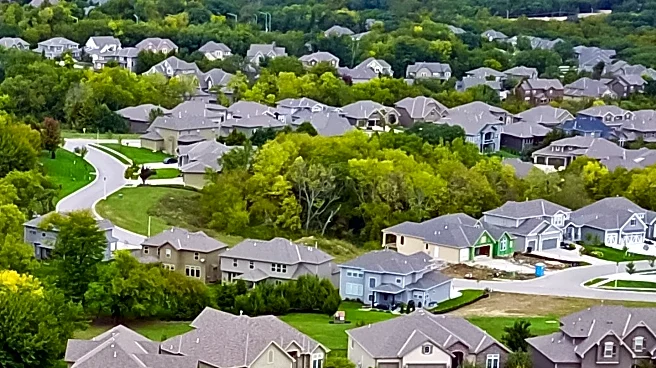What is the story about?
What's Happening?
Real estate agents are emphasizing the importance of prioritizing the neighborhood over the house itself when purchasing a home. This approach is based on the belief that the neighborhood significantly influences daily routines, community connections, education opportunities, and financial stability. Agents suggest that choosing a less ideal house in a desirable neighborhood is preferable to selecting a nicer house in a less favorable area. This strategy is aimed at ensuring long-term satisfaction and a sense of home. Agents are employing various strategies, such as exploring different neighborhoods with buyers and facilitating off-market transactions by reaching out to homeowners in preferred areas. The focus is on balancing compromises and priorities, distinguishing between essential needs and desirable wants, and ensuring that the property fulfills fundamental requirements before considering additional amenities.
Why It's Important?
The emphasis on neighborhood selection over the house itself has significant implications for homebuyers and the real estate market. By prioritizing location, buyers can ensure a more fulfilling homeownership experience, which can lead to better community integration and stability. This approach can also impact the real estate market by shifting demand towards certain neighborhoods, potentially affecting property values and local economies. Buyers who focus on neighborhood quality may benefit from improved lifestyle satisfaction, access to better education and community resources, and enhanced financial stability. Real estate agents play a crucial role in guiding buyers through these decisions, helping them make informed choices that align with their long-term goals and preferences.
What's Next?
As this strategy gains traction, real estate agents may continue to refine their approaches to neighborhood prioritization, potentially leading to new methods for evaluating neighborhood quality and suitability. Buyers may increasingly seek out agents who specialize in neighborhood analysis and off-market transactions. This trend could also prompt real estate developers and local governments to invest in community improvements to attract homebuyers. Additionally, the focus on neighborhood quality may influence future urban planning and development strategies, as communities strive to meet the evolving needs and preferences of residents.
Beyond the Headlines
The shift towards neighborhood prioritization in home buying may have broader cultural and social implications. It could encourage a greater sense of community and belonging, as individuals choose locations that align with their values and lifestyle. This trend may also lead to increased advocacy for community development and investment in local resources, as residents seek to enhance their living environments. Furthermore, the emphasis on neighborhood quality could influence housing policies and initiatives aimed at improving urban areas and addressing disparities in community resources.















